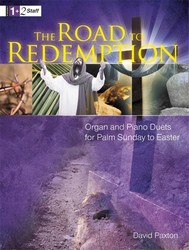Tr. al inglés: John Mason Neale

John M. Neale's life is a study in contrasts: born into an evangelical home, he had sympathies toward Rome; in perpetual ill health, he was incredibly productive; of scholarly temperament, he devoted much time to improving social conditions in his area; often ignored or despised by his contemporaries, he is lauded today for his contributions to the church and hymnody. Neale's gifts came to expression early–he won the Seatonian prize for religious poetry eleven times while a student at Trinity College, Cambridge, England. He was ordained in the Church of England in 1842, but ill health and his strong support of the Oxford Movement kept him from ordinary parish ministry. So Neale spent the years between 1846 and 1866 as a warden of Sackvi…
Go to person page >tr. al castellano: Adolfo Robelto
Born: January 4, 1917, Managua, Nicaragua.
Died: April 1, 1994, Texas.
Pseudonyms:
Daniel R. Diaz
Pablo Filós
Robleto attended the Colegio Bautista in Managua (graduated 1940), and the Baptist Seminary in New Orleans, Louisiana, and pastored churches in Nicaragua, Costa Rica and Texas. He also directed the Department of Administration of Churches and Pastoral Leadership, edited The Christian Home for the Casa Bautista de Publicaciones, and translated about 200 hymns from English to Spanish. His works include:
501 Ilustraciones Nuevas
Doctrina Cristiana
Dram…
Go to person page >Author: John of Damascus, Saint

Eighth-century Greek poet John of Damascus (b. Damascus, c. 675; d. St. Sabas, near Jerusalem, c. 754) is especially known for his writing of six canons for the major festivals of the church year. John's father, a Christian, was an important official at the court of the Muslim caliph in Damascus. After his father's death, John assumed that position and lived in wealth and honor. At about the age of forty, however, he became dissatisfied with his life, gave away his possessions, freed his slaves, and entered the monastery of St. Sabas in the desert near Jerusalem. One of the last of the Greek fathers, John became a great theologian in the Eastern church. He defended the church's use of icons, codified the practices of Byzantine chant, and wr…
Go to person page >

 My Starred Hymns
My Starred Hymns







